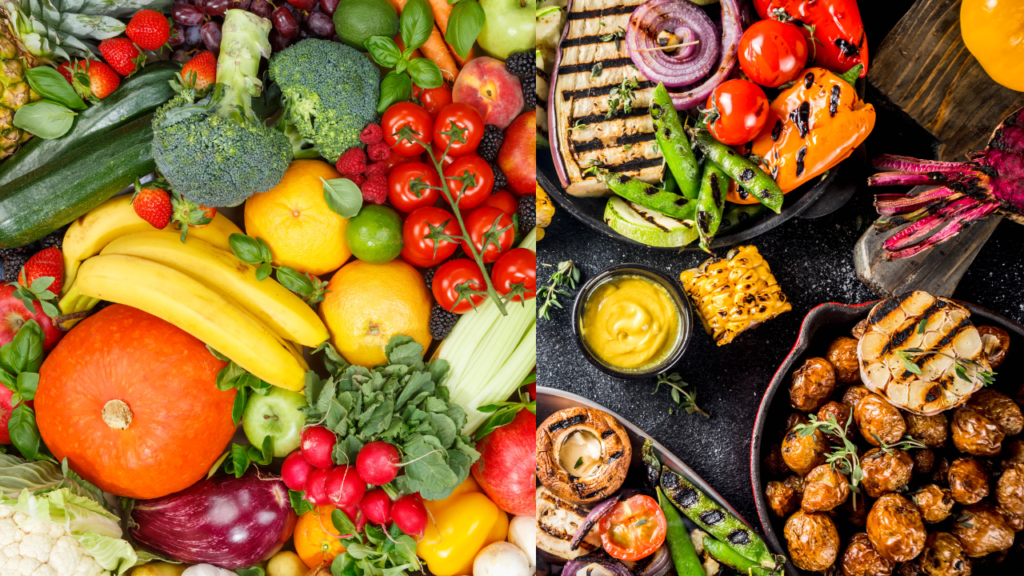
In the intricate dance of movement, our muscles are the silent performers, but when stiffness sets in, the rhythm falters. Fear not, for Ayurveda, the ancient science of life, offers a symphony of remedies to ease the discomfort of muscle stiffness and restore the body to harmony.
Let’s embark on a journey through the gentle remedies, nourishing practices, and timeless wisdom of Ayurveda, as we unravel the knots of discomfort and find solace in the freedom of fluid movement.
Understanding Muscle Stiffness through an Ayurvedic Lens 🌿
Muscle stiffness, known as Mansagata Vata in Ayurveda, is a condition characterized by tension, rigidity, and limited flexibility in the muscles.
It can occur due to various factors such as physical exertion, overuse of muscles, poor posture, sedentary lifestyle, dehydration, nutritional deficiencies, stress, and imbalances in the doshas (Vata, Pitta, and Kapha).
Ayurveda views muscle stiffness as a manifestation of aggravated Vata dosha, which disrupts the natural lubrication and mobility of the joints and muscles.

What is Muscle Stiffness? 🤔
Muscle stiffness refers to the sensation of tightness, discomfort, or resistance in the muscles, making movement feel restricted or painful. It can affect any muscle group in the body, including the neck, shoulders, back, legs, and arms. Common symptoms of muscle stiffness include:
- Tightness and Tension: Feeling of tightness, tension, or stiffness in the muscles, especially after physical activity or prolonged sitting or standing.
- Limited Range of Motion: Difficulty moving the affected muscles or joints fully, resulting in reduced flexibility and mobility.
- Pain and Discomfort: Dull, achy, or sharp pain in the muscles or joints, particularly with movement or pressure.
- Fatigue and Weakness: Feeling of fatigue, weakness, or heaviness in the affected muscles, especially after prolonged use or exertion.
Causes of Muscle Stiffness According to Ayurveda 🌱
Ayurveda identifies several factors that can contribute to muscle stiffness:

- Vata Imbalance: Excess Vata dosha, characterized by qualities of dryness, coldness, and mobility, can lead to dryness and stiffness in the muscles and joints, as well as impaired circulation and nerve function.
- Poor Digestion and Elimination: Weak digestion (Mandagni) and sluggish elimination (Mala Sanchaya) can lead to the accumulation of toxins (ama) in the body, which can contribute to stiffness and inflammation in the muscles.
- Dehydration: Inadequate hydration and fluid intake can lead to dehydration of the muscles and tissues, making them more prone to stiffness and cramping.
- Sedentary Lifestyle: Lack of regular physical activity, prolonged sitting or standing, and poor posture can lead to muscle imbalances, weakness, and stiffness.
- Nutritional Deficiencies: Inadequate intake of essential nutrients such as calcium, magnesium, potassium, and vitamin D can contribute to muscle stiffness and cramping.
Prevention: Nurturing Muscular Flexibility Naturally 🌟
Prevention is key to managing muscle stiffness and maintaining muscular flexibility and mobility. Ayurveda offers holistic strategies to prevent muscle stiffness and promote overall musculoskeletal health:

- Regular Exercise: Engage in regular physical activity such as yoga, stretching exercises, walking, swimming, or cycling to improve flexibility, strengthen muscles, and promote circulation.
- Hydration: Drink plenty of water throughout the day to stay hydrated and maintain fluid balance in the body. Include hydrating foods such as fresh fruits, vegetables, soups, and herbal teas in your diet.
- Warm-up and Cool-down: Always warm up before exercise and cool down afterward to prepare the muscles for activity and prevent stiffness and soreness.
- Proper Posture: Maintain good posture while sitting, standing, and moving to prevent strain on the muscles and joints. Use ergonomic furniture and supports if necessary.
- Healthy Diet: Follow a balanced diet that includes nutrient-rich foods such as fruits, vegetables, whole grains, lean proteins, and healthy fats to support muscle health and prevent nutritional deficiencies.
Treatment: Alleviating Muscle Stiffness Naturally 🌸
In addition to prevention, Ayurveda offers gentle and effective remedies to alleviate symptoms and promote healing during episodes of muscle stiffness:

- Herbal Remedies: Take herbal supplements or decoctions that help pacify Vata dosha, improve circulation, and relax the muscles. Herbs such as Ashwagandha, Shatavari, Guggulu, and Shallaki can help reduce inflammation, relieve pain, and promote muscular flexibility.
- Warm Oil Massage: Perform self-massage (Abhyanga) using warm herbal oils such as Mahanarayan oil, Dhanvantaram oil, or Bala oil to lubricate the joints, nourish the muscles, and reduce stiffness and tension.
- Steam Therapy: Take steam baths or steam inhalation using aromatic herbs such as eucalyptus, camphor, or mint to relax the muscles, improve circulation, and relieve congestion.
- Yoga and Stretching: Practice gentle yoga asanas (postures) and stretching exercises that target the affected muscles and promote flexibility, such as Uttanasana (Standing Forward Bend), Janu Sirsasana (Head-to-Knee Forward Bend), and Bhujangasana (Cobra Pose).
- Hot Compresses: Apply hot compresses or heating pads to the affected muscles to improve circulation, reduce stiffness, and alleviate discomfort. Use caution to avoid burns or overheating.
Dietary Recommendations for Muscle Stiffness 🍲
In addition to herbal remedies and therapies, dietary modifications can help alleviate symptoms and promote muscular flexibility:

- Anti-inflammatory Foods: Include foods that are rich in anti-inflammatory nutrients such as omega-3 fatty acids, vitamin C, and antioxidants to reduce inflammation and promote healing. Include foods such as fatty fish, nuts, seeds, leafy greens, berries, and turmeric in your diet.
- Magnesium-Rich Foods: Consume foods that are high in magnesium, such as green leafy vegetables, nuts, seeds, whole grains, and legumes, to support muscle relaxation and reduce cramping and stiffness.
- Hydrating Foods: Eat hydrating foods such as watermelon, cucumber, oranges, strawberries, and coconut water to maintain fluid balance in the body and prevent dehydration-related muscle stiffness.
- Warm and Nourishing Foods: Favor warm, cooked foods that are easy to digest and nourishing to the muscles and tissues. Include soups, stews, cooked grains, steamed vegetables, and herbal teas in your diet.
Conclusion:
In the tapestry of movement, our muscles are the threads that weave the fabric of mobility and vitality. With Ayurveda as our guide, we unravel the knots of discomfort, restore the flow of Prana, and reclaim the freedom of fluid movement. Let us embark on this journey together, with Ayurveda as our trusted ally, illuminating the path to muscular freedom and well-being. May your muscles be supple & your movements be graceful.
Disclaimer : The techniques described in these articles are not intended as substitutes for professional medical advice or treatment. Consult a physician before trying any new health treatment. Do not stop or change prescribed medications without consulting your healthcare provider. The information provided is for educational purposes only. Results will vary based on individual factors. Always rely on the guidance of a qualified medical professional for any health concerns.
Read Our Latest Articles:
- Ayurveda for Disc Bulge: Finding Relief Naturally
- Ayurveda for Alopecia Areata: Nurturing Hair Health Naturally
- Ayurveda for Asthma: Breathe Easy with Natural Solutions
- Ayurveda for Melasma: Embracing Natural Solutions for Clear, Radiant Skin
- Ayurveda for Dampness in the Body: Embracing Balance and Vitality
Leave a Reply